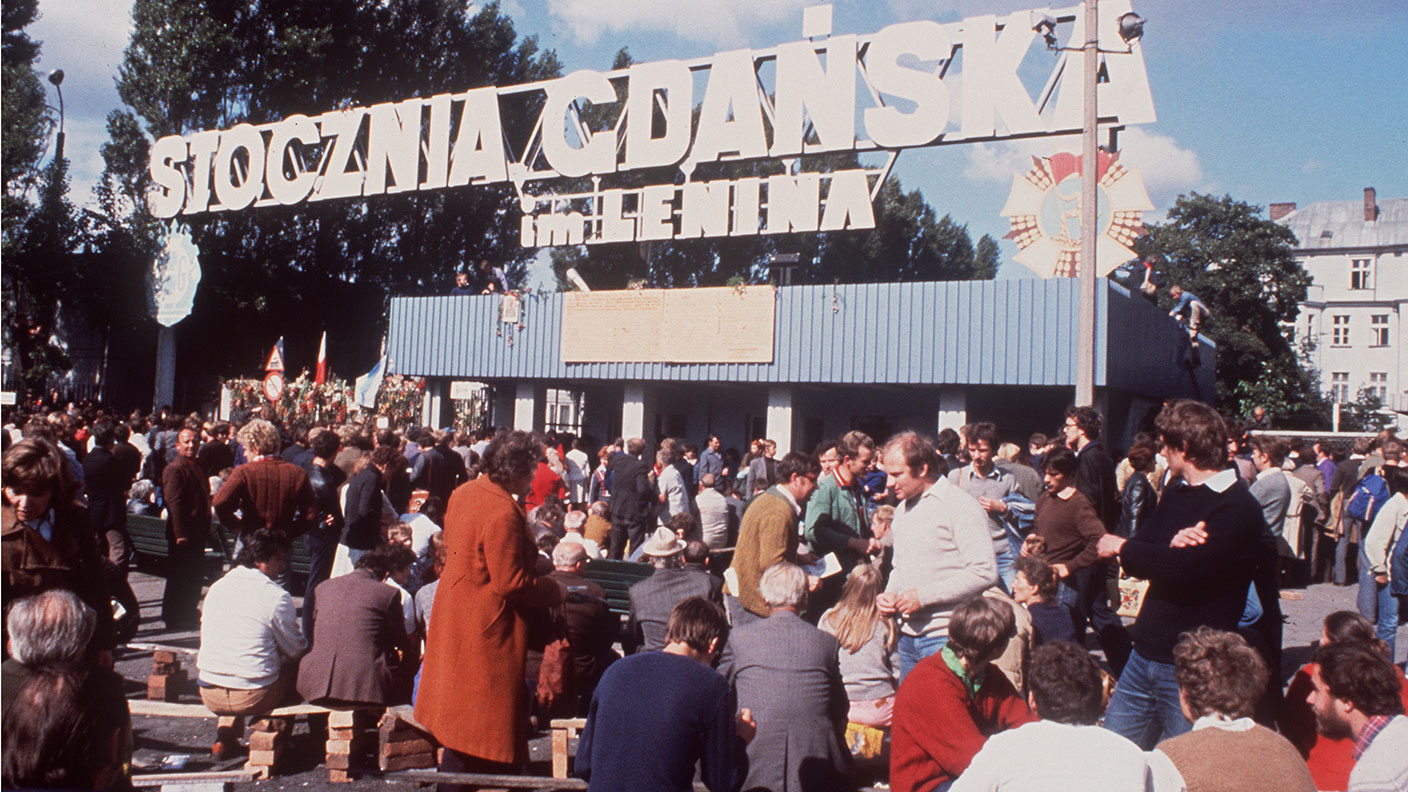14 August 1980: Gdansk shipyard strike begins
On this day in 1980, dockworkers at the Lenin Shipyard in Gdansk downed tools, leading to the formation of the Solidarity trade union.


Get the latest financial news, insights and expert analysis from our award-winning MoneyWeek team, to help you understand what really matters when it comes to your finances.
You are now subscribed
Your newsletter sign-up was successful
Want to add more newsletters?

Twice daily
MoneyWeek
Get the latest financial news, insights and expert analysis from our award-winning MoneyWeek team, to help you understand what really matters when it comes to your finances.

Four times a week
Look After My Bills
Sign up to our free money-saving newsletter, filled with the latest news and expert advice to help you find the best tips and deals for managing your bills. Start saving today!
After the end of World War II, the Soviet Union installed a puppet government in Poland. The government imposed the communist economic system on the country, resulting in living standards falling behind the West. It also meant that independent trade unions were banned.
In 1970, Polish dockworkers tried to strike over higher food prices, only to be forced back to work by the army. Around 40 people were killed by the army and militia during the protests.
Discontent continued to grow and by the late 1970s, the beginning of an underground trade union movement began to emerge. The defining moment came when the government once more decided to raise food prices. On 14 August 1980, the dockworkers at the Lenin Shipyard in Gdansk downed tools again. Electrician and pro-democracy activist Lech Walesa became their de-facto leader.
MoneyWeek
Subscribe to MoneyWeek today and get your first six magazine issues absolutely FREE

Sign up to Money Morning
Don't miss the latest investment and personal finances news, market analysis, plus money-saving tips with our free twice-daily newsletter
Don't miss the latest investment and personal finances news, market analysis, plus money-saving tips with our free twice-daily newsletter
Crucially, Walesa persuaded workers at other plants to join them, bringing the country to a halt. Within days, Warsaw backed down, allowing dockworkers to form their own trade union, Solidarity.
As one of the few independent organisations in Poland, Solidarity became the focal point for discontent. By 1981, its popularity was such that the Polish government declared martial law, ostensibly to forestall the Soviet Union taking matters in its own hands.
Despite this repression, Solidarity was too powerful to suppress and it was partially legalised in 1986. With the economy imploding and the Soviet Union unable to send in troops, Solidarity played a key role in the collapse of the Communist system. In August 1990, Walesa was elected president of Poland.
Get the latest financial news, insights and expert analysis from our award-winning MoneyWeek team, to help you understand what really matters when it comes to your finances.

-
 MoneyWeek news quiz: Can you get smart meter compensation?
MoneyWeek news quiz: Can you get smart meter compensation?Smart meter compensation rules, Premium Bonds winners, and the Bank of England’s latest base rate decision all made the news this week. How closely were you following it?
-
 Adventures in Saudi Arabia
Adventures in Saudi ArabiaTravel The kingdom of Saudi Arabia in the Middle East is rich in undiscovered natural beauty. Get there before everybody else does, says Merryn Somerset Webb
-
 31 August 1957: the Federation of Malaya declares independence from the UK
31 August 1957: the Federation of Malaya declares independence from the UKFeatures On this day in 1957, after ten years of preparation, the Federation of Malaya became an independent nation.
-
 13 April 1960: the first satellite navigation system is launched
13 April 1960: the first satellite navigation system is launchedFeatures On this day in 1960, Nasa sent the Transit 1B satellite into orbit to provide positioning for the US Navy’s fleet of Polaris ballistic missile submarines.
-
 9 April 1838: National Gallery opens in Trafalgar Square
9 April 1838: National Gallery opens in Trafalgar SquareFeatures On this day in 1838, William Wilkins’ new National Gallery building in Trafalgar Square opened to the public.
-
3 March 1962: British Antarctic Territory is created
Features On this day in 1962, Britain formed the British Antarctic Territory administered from the Falkland Islands.
-
10 March 2000: the dotcom bubble peaks
Features Tech mania fanned by the dawning of the internet age inflated the dotcom bubble to maximum extent, on this day in 2000.
-
9 March 1776: Adam Smith publishes 'The Wealth of Nations'
Features On this day in 1776, Adam Smith, the “father of modern economics”, published his hugely influential book The Wealth of Nations.
-
 8 March 1817: the New York Stock Exchange is formed
8 March 1817: the New York Stock Exchange is formedFeatures On this day in 1817, a group of brokers moved out of a New York coffee house to form what would become the biggest stock exchange in the world.
-
7 March 1969: Queen Elizabeth II officially opens the Victoria Line
Features On this day in 1969, Queen Elizabeth II took only her second trip on the tube to officially open the underground’s newest line – the Victoria Line.